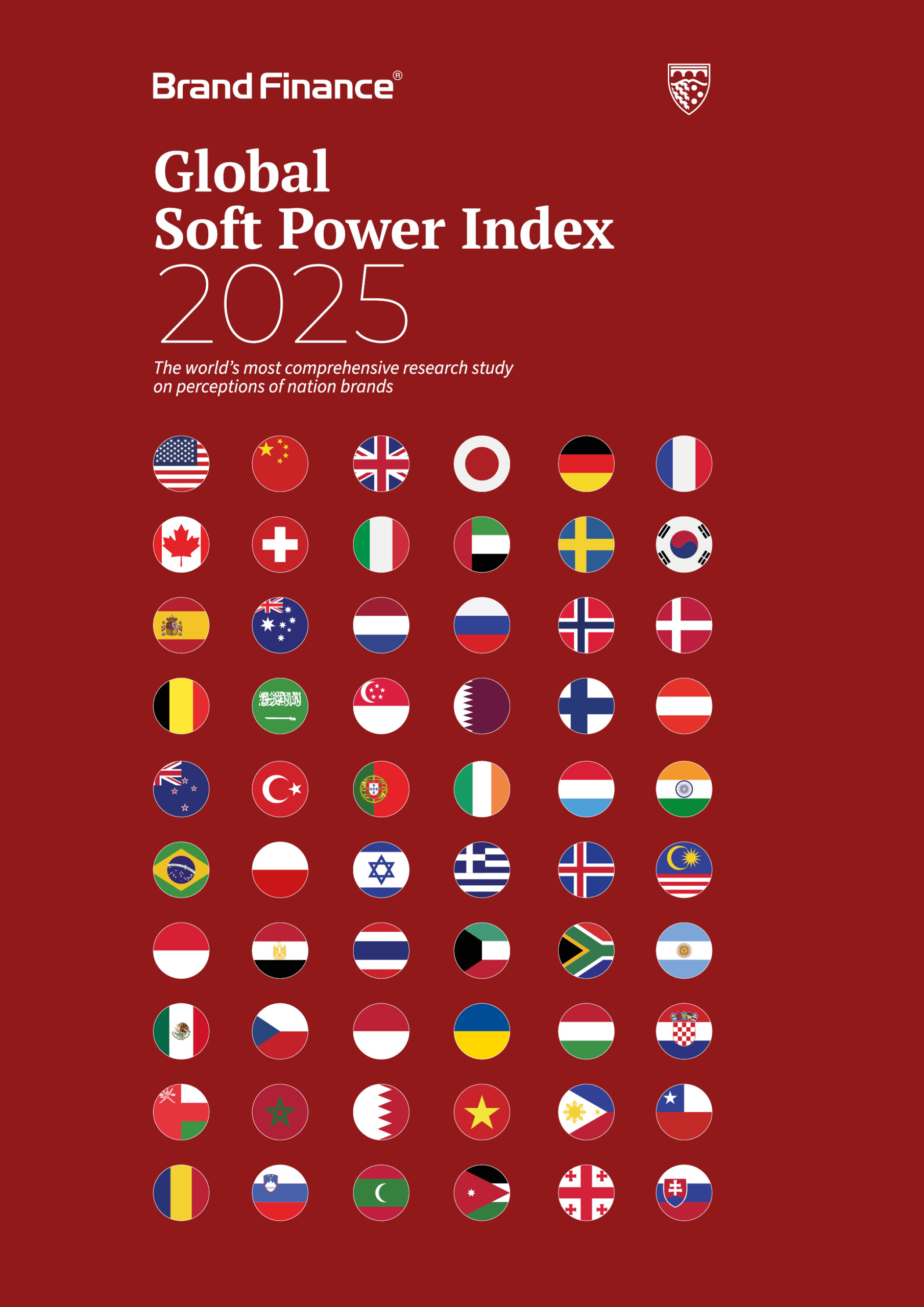This article was originally published in the Brand Finance Global Soft Power Index 2025

Global Managing
Director, International
Advertising Association
As the world grows more interconnected and competitive, the concept of Soft Power is more vital than ever before.
Defined as the ability to shape preferences and influence behaviours through attraction and persuasion, Soft Power is a fundamental resource in international relations and may well be the key to national survival in the 21st century. As nations vie for influence and recognition on the global stage, advertising spend emerges as an essential component of nation branding. Yet, many governments are falling short on their investments, neglecting one of their most important assets: their national identity.
It is not an exaggeration to say that the disparity between nations that understand the power of brand promotion and those that do not could determine future global influence. Nation branding involves crafting a compelling image that resonates with foreign audiences, encompassing culture, values, and economic opportunities.
Surprisingly, national governments often allocate limited budgets to these initiatives, underestimating the visibility, influence, and economic benefits a cohesive brand can deliver. A lack of understanding regarding the connection between advertising spend and the value of a nation's brand may lead to missed opportunities that could enhance international relationships, stimulate tourism, and attract investment.
For example, countries like Canada and New Zealand, allocate significant resources to marketing their brands as welcoming, progressive, and innovative. These nations recognize the competitive advantage a robust brand can afford them, both economically and socially. Indeed, nations that cultivate strong brands can shape international perceptions, foster goodwill, and create valuable connections worldwide. By contrast, many nations are losing ground in this race simply by failing to invest sufficiently in their own identity.
International organizations play an important role in guiding governments to understand best practices in nation branding and Soft Power. The International Advertising Association (IAA) acts as a global compass, helping policymakers and industry leaders navigate this rich field by highlighting successful strategies and innovative approaches.
The IAA provides a platform for the exchange of ideas and knowledge, amplifying the importance of structured branding efforts. Thanks to collaboration with Brand Finance, the IAA leverages annual indices that rank the world's highest-value nation brands. These reports dissect the strategies that propel certain countries to the forefront of international influence, providing critical insights for governments looking to enhance their own branding efforts. This partnership not only quantifies brand value but also educates governments on the opportunities that arise from effective branding, providing a roadmap for future investments and campaigns.
Understanding the dynamics behind successful nation brands can yield substantial economic benefits. Countries that prioritize building and maintaining their brand identities can expect improved tourism revenues, attract foreign direct investment, and heighten diplomatic ties. For businesses operating within these nations, a positive national image creates a favourable environment for growth. A powerful nation brand translates into economic advantages for both the public and private sectors, highlighting the importance of investment in this area.
The need for international collaboration in sharing knowledge about branding cannot be underestimated. The IAA and Brand Finance exemplify how organizations can partner to provide critical intelligence about the best practices for building and sustaining successful nation brands. By analyzing the tactics employed by leading countries, other nations can adapt those insights to their unique contexts, thereby accelerating their branding initiatives. The economic implications are clear: nations that successfully cultivate their brands can sustain and enhance their competitiveness on the global stage.
The concepts of Soft Power and nation branding should not merely reside within the portfolios of diplomats and government officials; they should be integrated into broader economic strategies. For smaller nations, or those with limited visibility, these insights can serve as game-changers, allowing them to stand out amid the noise of larger or more prominent players.
The importance of a well-funded and strategic advertising budget for nation branding will only grow. With geopolitical tensions, economic volatility, and the rise of populism shaping public sentiment around the world, the need for nations to project a positive and attractive image is paramount. This is not just about marketing - it is about survival and prosperity in a landscape that rewards those who are visible, relatable, and positioned strategically.

